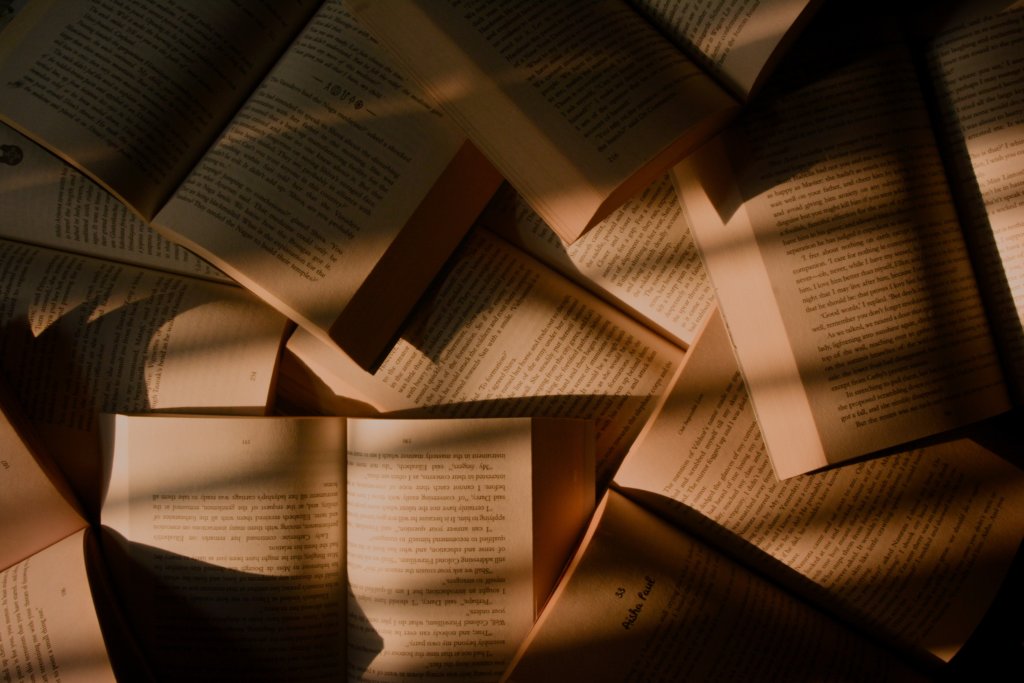I’m working on a novel about a 32-year-old woman who is deeply insecure but tries to mask it with false bravado. She second-guesses every move but tries to hype herself up by saying, “Go me!” and “I got this,” nearly every chance she gets. When I show small snippets of the novel to a writing group consisting primarily of women around my age, the feedback is positive. They’ve told me it’s highly relatable, either for themselves or because it reminds them of their friends. One woman commented this is the sort of book she’d stay up late reading.
However, when I show small snippets of the novel to a writing group consisting primarily of women around 30 years older than me, the feedback is negative. They compliment the writing itself and praise my strong voice, but hate the character. They say she’s self-indulgent and unlikeable. Same character, different audience.
The novel is very much a work in progress. I haven’t even completed the first draft so I’ll change 10,000 things from now and when I deem it ready for the world so who knows how people will respond at that point? Yet, regardless of the changes I make, the experience reminds me you can’t please everyone all the time and it’s not worth it to try. What strikes a chord with one person will be disharmonious to another. Also, depending on the age and stage of life, the same person will no longer like the thing they once enjoyed!
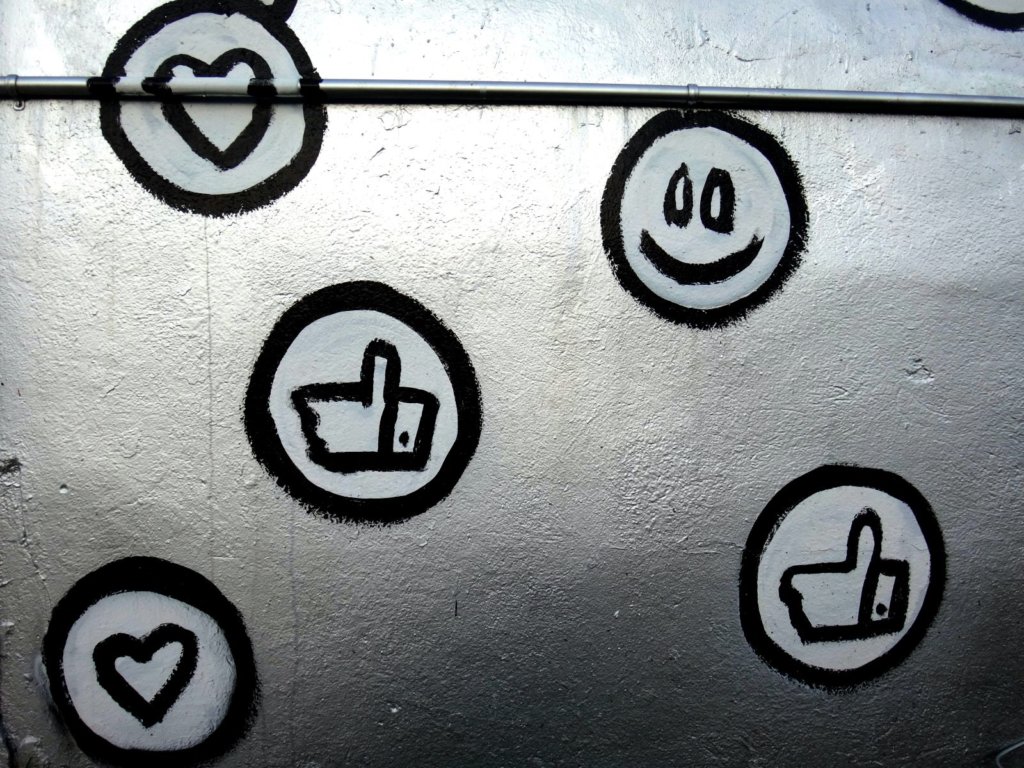
Likes come and go. Photo by George Pagan III on Unsplash
This happened to me on Saturday night. I went to San Francisco for a play and walked just two blocks from where I used to live near Union Square. It’s a neighborhood filled with hustle and bustle. There are about a million people milling about. Cars are honking, people are chatting, and restaurants are buzzing. When I was 23, I loved Union Square. I wanted to be in the thick of things. My feeling was, “Take me to where the action is!” But now at 38, I don’t want to be where the action is. I want the antithesis of Union Square: a house with a yard on a quiet street.
A friend asked me if there’s anything I miss about living there and I do. I miss the public transportation. I could catch numerous buses and multiple train lines easily whereas now my options are more limited. I miss that part but nothing else. I have zero desire to live in Union Square again but for me at 23, it was a dream come true. People change and their tastes change. Because of that, it’s impossible to please everyone. In marketing, they say if you try to appeal to everyone, you’ll appeal to no one. That’s because your product will become so diluted and bland, no one will be interested.
This principle of “you can’t please everyone” doesn’t only apply to art and commerce. It also applies to life. At this time of year, people are pulled in many different directions. They feel pressured to go to all of the holiday parties, visit their families for 10 days, buy gifts for everyone on their list. They get stretched too thin because they’re worried about displeasing their boss, their family, their friends. But here’s the thing: Someone will always be displeased. It’s just not possible to be everything to everyone and if you try, you’ll wind up burned out and resentful.
The more I recognize someone, or rather many someones, won’t like me, my art, my blog, my behavior, or heck, the way I style my hair, the better off I am because it’s inevitable. It’s not bad or wrong, it’s just a fact of life. It’s probably for this reason you’ve seen the overused quote wrongly attributed to Oscar Wilde that says, “Be yourself. Everyone else is already taken.”
I dream of a world where we remember people like different things. A world where we understand not only do other people have varied tastes, but our tastes change too. A world where we recognize it’s more important to take care of ourselves than to engage in people pleasing. A world where we remember we won’t be able to please everyone.
Another world is not only possible, it’s probable.
I enrolled in a novel writing class and I confessed to a fellow writer that I feel a lot of pressure to put into practice everything I’m learning. I want my dialogue to conceal and reveal. I want to keep the reader guessing but not withhold too much. I want the plot to be engaging while also emotionally stirring. And I want to do all that perfectly in the first draft.
There aren’t many areas of my life where perfectionism continues to show up, but this is one of them. I care so much about the heroine’s journey novel I’m writing and that means I want to do this story justice. I want it to be the best book it can possibly be and so, hello perfectionism. When I shared this angst with my friend she said to me, “Give yourself the grace of being a newcomer,” and it felt like rubbing aloe vera on a sunburn.
Ahhhhh. Grace. Yes. I know people talk about writing terrible first drafts and understanding that’s a part of the process, but characterizing a draft as “terrible” is a judgment. There’s space for perfectionism because if you know a draft is terrible, that means there’s a certain standard you have for the draft that it’s currently not meeting. When I say to myself, “This draft is awful. God, I can’t believe I wrote this,” I’m judging my efforts and not giving myself grace.
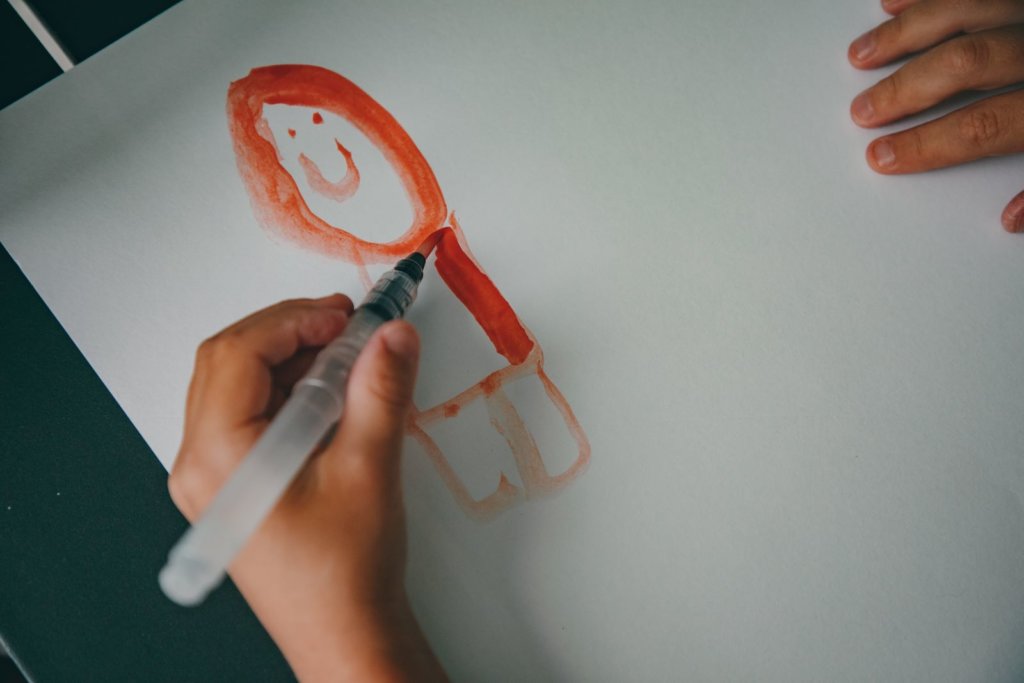
What if I let myself learn like a child? Photo by Anima Visual on Unsplash
I’ve never taken a creative writing class before. I know nothing about novel writing. I didn’t get an MFA; I got a bachelor’s in journalism. Ask me to write an anecdotal lead and I can bang one out in a jiffy. Ask me to write a novel and I’m stumped. In other words, novel writing is completely new to me and by holding myself to a high standard, I’m stifling creativity. I’m not letting myself play around. I’m not extending compassion and forgiveness toward myself. In other words, I’m not treating myself like I treat other beginners.
When my young nieces and nephews draw me a picture, I don’t say, “This is terrible. The head is three times larger than the rest of the body.” No, I exclaim in delight and say, “Wow! Look at that!” because they’re young and they’re just learning how to draw. I want to encourage them to keep going because they enjoy it. I don’t have expectations my nieces and nephews will be famous visual artists by the age of 8. I’m letting them be kids. However, I don’t do that with adults, either myself or others. As adults, there’s an expectation that we are at least competent with whatever we’re doing. That means not sucking at surfing, or not playing the piano without striking the wrong key, regardless of how long we’ve taken lessons.
Psychiatrist Dr. Gail Saltz says, “Culture is consumed with being an expert.” In fact, average levels of social perfectionism rose by about a third from 1989 to 2016 in a study of 41,000 college students. Is that number higher now? Probably.
We’re not giving ourselves the grace of being a newcomer. Even in the numerous articles I read on this topic, the writers said, “Let yourself fail,” or had titles with, “The case for being bad at something.” One even mentioned you’ll start off sucking but eventually, you’ll get better at crocheting or whatever your activity is. How about if we changed that narrative?
What if instead of proclaiming something we’re doing is good or bad, excellent or terrible, we let ourselves just be? What if we treated ourselves like small children, encouraging ourselves to keep learning and growing without judging the outcomes? I’d likely enjoy what I’m doing more. Maybe you would too.
I dream of a world where we approach new skills and hobbies with an open mind. A world where we leave judgment out of the equation as we learn something new. A world where we stop expecting we’ll be an expert at whatever we try. A world where we give ourselves the grace of being a newcomer.
Another world is not only possible, it’s probable.
I keep seeing suns everywhere — as a ceramic decoration on the side of a house, on cartoons, cards, etc. The sun is “talking” to me, which makes sense because I keep thinking about shining. What does it mean to shine? Where and how do I shine? Where and how do other people shine? Can I boost my shininess?
There are multiple definitions of “shine.” One of them is to emit rays of light, to give light. Another is to be eminent, conspicuous, or distinguished. I like to think of personal shining as emitting metaphorical rays of light in a conspicuous way. It’s the process of showering the self upon the world; much like the sun does for Earth. There’s a method for figuring out when and how we each shine. An Instagram post by Astrology with Andy said astrologically speaking, “The sign your sun is in [signifies] traits you identify with and/or are important to you. The house your sun is in [denotes] the area(s) of life where your sun sign’s qualities can best, and most easily, shine. The aspects your sun makes to other planets [shows] how to help your sun shine (and possible pitfalls that can dim its light).”
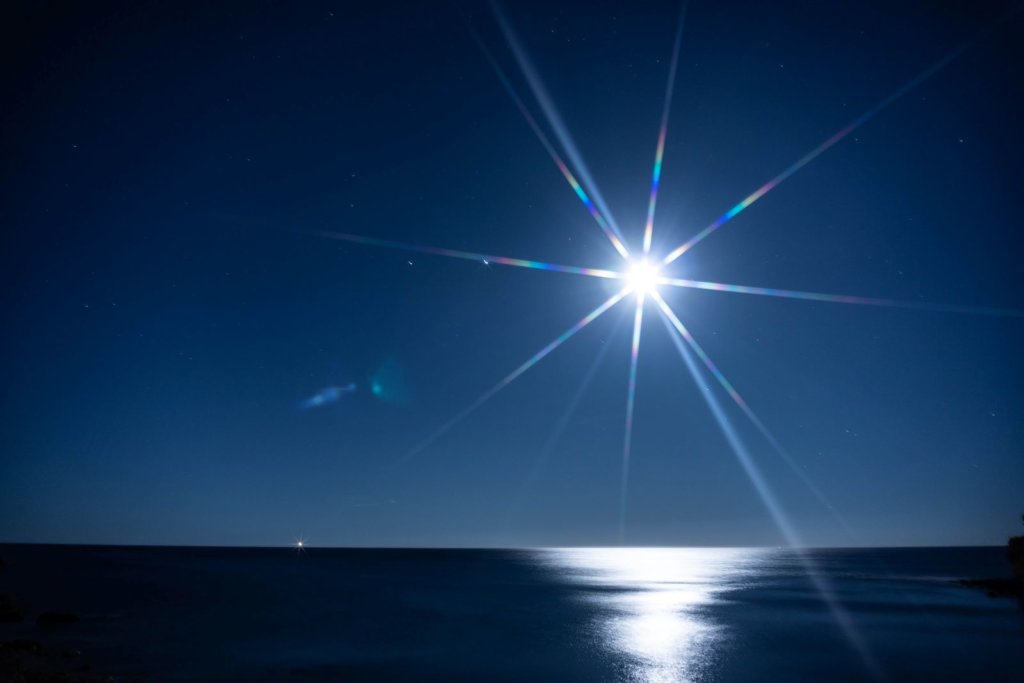
I want to shine brightly. Photo by Benjamin Patin on Unsplash
As for me, my sun is in Sagittarius, sits in the 11th house, and conjuncts Uranus. Qualities associated with Sagittarius (and thus ones I value) are optimism, knowledge, and broadmindedness. The 11th house is the one of friends, community, groups, etc. so I shine in groups of people. It’s no surprise that while I get nervous speaking in public, I also love it. And because my sun is conjunct Uranus (a planet that has rabble-rouser/innovator energy), I shine specifically by either standing out as a vanguard, and/or in unusual communities such as 12-step groups or a fringe spiritual organization, for instance. I’m laughing and shaking my head because that’s exactly true and once again points toward the merits of astrology. Anyone who thinks it’s b.s. just doesn’t know any better.
Being aware of all this has me wondering two things — 1.) How can I activate my shininess more? And 2.) Is what I want even possible? Is it even in the cards for me to be a bestselling author? My astrological chart essentially says, “You have an intense desire to be renowned, it’s important for your self-esteem, buuuuuuut you have to work incredibly hard to achieve that.” Astrology isn’t everything — the Divine beloved is more powerful than astrology and can make anything happen, but still. I’m not feeling all that hopeful or optimistic, and as mentioned earlier, those are traits I prize.
AND instead of falling into a pit of despair, which frankly feels tempting, I’m reminded of a concept in many spiritual philosophies, including mine: “You have the right to action but not to the fruits of the actions.” My spiritual teacher says, “Wherever there is an action, there is a corresponding reaction because every action gets either reflected or refracted. The wave produced by the action will be either reflected or refracted. Both reflection and refraction are reactions. So whenever you act, whatever the nature of that work, that is the kind of reflection or refraction it will produce. But that reflected or refracted reaction is not in your hands. To do whatever you do, that is your only right.”
To do whatever I do is my only right. How it will be received, who will read it, how popular I’ll become as a result, etc. is out of my hands and not up to me. All I can do is what I’m doing and in this case that means putting words on a page.
I dream of a world where we recognize our own unique talents and gifts. A world where we shine those gifts upon the world. A world where we understand that as much as we want to control outcomes, we cannot. A world where we realize all we can do is put in the work and let go of the rest.
Another world is not only possible, it’s probable.
This week I read a Twitter thread about the creator of the latest Netflix phenomenon “Squid Game.” According to several news pieces, Hwang Dong-hyuk wrote the show in 2009 but was rejected by studios for 10 years. He once had to stop writing the script and sell his $675 laptop because of money struggles. The Twitter thread author, Ifę, @ifetalksback, said as a writer they find the story terrifying more than inspiring.
As part of the thread, Ifę said, “They’ll be like ‘I had to wait 15 years, my mother don’t speak to me anymore, I lost a finger to typing so much, I can’t remember the last time I saw the sky. But now I have a show,’ And the comments from everyone who ISN’T a writer is like ‘NEVER give up bro, so inspiring.’”
I agree – on the one hand, it’s always inspiring when long-awaited dreams come true, but on the other hand, I find the story to reflect poorly on not only the film industry, but also us as a society in general. Hwang had to literally sell one of the tools of his trade in order to make ends meet. That’s not OK.
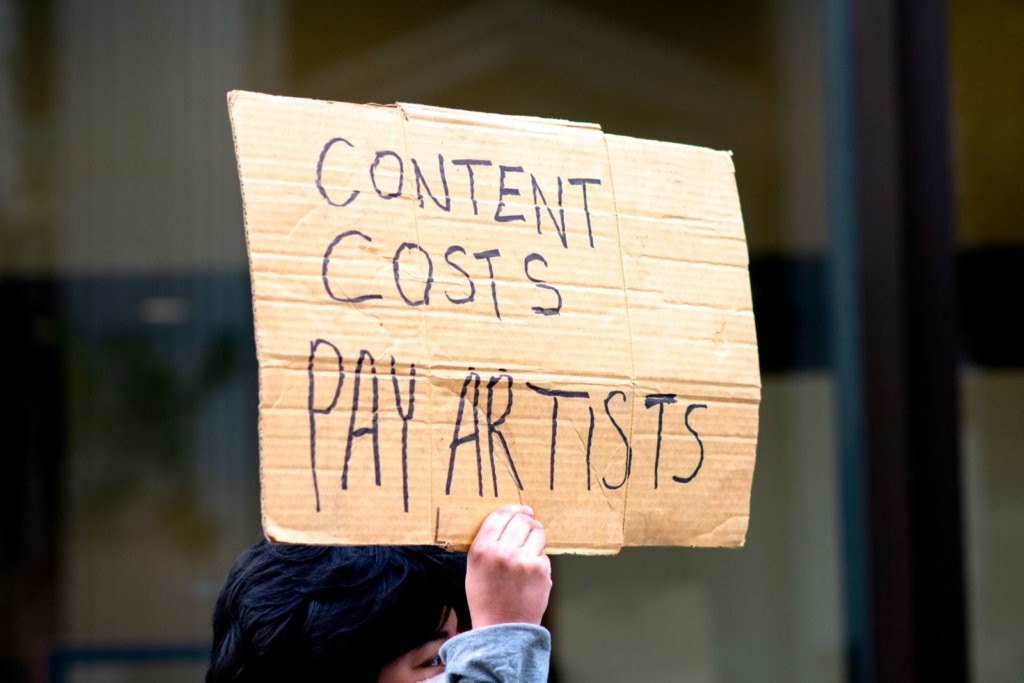
The picture says it all. Photo by Patrick Perkins on Unsplash
My spiritual teacher says it’s the duty of society to support its artists because artists are pioneers. “If those who are the pioneers of society … if they are forced to starve or half-starve, this will certainly not be to the credit of human society. It is unthinkable that these creative geniuses should curse their own fate.”
Seriously. Artists – and that includes writers – have a special role to play in society and letting them struggle is not cute or inspiring or romantic or whatever notions we have in this modern world. It’s a travesty. Especially during the pandemic, we’ve seen the importance of art and literature. What would we do, how would we survive if we didn’t have books to read, movies to watch, games to play? For many, escaping into entertainment was, or is, the only way to feel joy during an otherwise extremely bleak period. And yet we let artists like Hwang Dong-hyuk toil away and then romanticize his rags-to-riches story? No.
What would happen if artists were supported and didn’t need to work “day jobs” or have numerous “side hustles” or live with 10 roommates just to survive? What sort of art would they make? What would they be able to accomplish if they weren’t constantly worried about money? In case you can’t tell, I’m PISSED this is the situation we find ourselves in. Not only for artists, but for everyone.
Who does this capitalistic, hypercompetitive economy work for? Very few, that’s who. And the reality is we don’t have to live like this. I don’t know how we release ourselves from the shackles of capitalism, but I do know there are other ways to live. Ways in which people are guaranteed the basic necessities of life like food, clothing, education, shelter, and medical care. Ways in which people are valued over profits, the environment is respected, and we as a society are able to satisfy our higher intellectual, artistic, and spiritual aspirations. Ways in which artists like Hwang Dong-hyuk don’t have to sell their laptops in order to pay their bills.
I dream of a world where we not only praise artists and writers, but we value them with our wallets. A world where we support artists and writers so they can do what they were put on this Earth to do – create. A world where we understand artists barely making ends meet is appalling, not romantic.
Another world is not only possible, it’s probable.
P.S. This might be a good time to mention I have a Patreon campaign. If you value my work, consider contributing.
Whenever I’m waiting on checks, like I am now, I think, “Maybe I should get a part-time job,” and then I apply for part-time jobs and never hear anything, not even a “no.” Inevitably I get reassurance from the universe that I’m doing exactly what I’m supposed to be doing either because I’m contacted by a potential new client, I accept another freelancing assignment, or I receive a sign. This past week the universe sent me all three.
What is the sign the universe sent me? The animal totem giraffe. A giraffe was mentioned in a book of essays I’m reading, during a Zoom meeting someone held a small giraffe toy in her hand, and giraffes were mentioned in another book I’m reading. Sometimes animals are just animals, but in this case at the sight and mention of “giraffe,” I felt a zing in my heart and my brain seemed to zero in on the word so I know it’s a sign and not a mere coincidence.
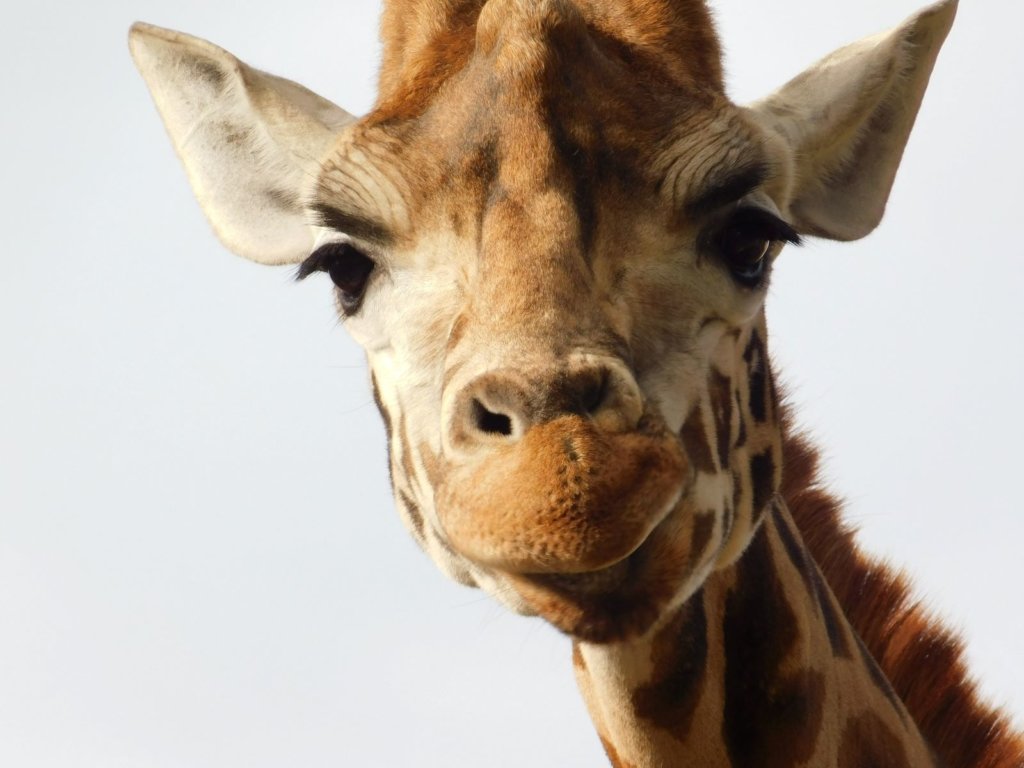
Giraffe wants to say hi. Photo by Photo Lily on Unsplash
There are numerous interpretations for the symbolism behind giraffes, but the one I liked the best comes from uniguide.com where Kristen M. Stanton writes, “The giraffe totem is a helpful symbol for reminding yourself that what makes you unique is one of your gifts to the world. It is your unusual qualities and life experiences that will help you to fulfill your purpose on Earth.”
If that isn’t the most perfect message to receive when I’m doubting myself and my abilities, I don’t know what is. Just as I think I should throw in the towel on my business, the universe tells me, “No. Your uniqueness, what makes you ‘you’ is needed in this world. Keep going.” While this post is about me, I’m pretty sure my experience is a universal one. How many times do we compare ourselves to someone else and find ourselves lacking? How frequently do we feel like we’re not doing the “right” thing because our life doesn’t look like someone else’s? Giraffe reminds us our uniqueness is a gift to the world. That it’s precisely our personal qualities and life experiences that matter and are worthwhile.
The concept is also in line with my spiritual philosophy. The central tenet of my spiritual practice is the universe is coming to know itself through me and you. We are the human expression of divinity. We are not human beings having a spiritual experience, but spiritual beings having a human experience, to quote Pierre Teilhard de Chardin.
Other people who speak to this idea eloquently are Brian Swimme and Mary Evelyn Pope who write in their book Journey of the Universe, “[J]ust as the Milky Way is the universe in the form of a galaxy, and an orchid is the universe in the form of a flower, we are the universe in the form of a human. And every time we are drawn to look up into the night sky and reflect on the awesome beauty of the universe, we are actually the universe reflecting on itself. And this changes everything.”
I am the universe reflecting on itself. The skills and talents I possess are gifts to be utilized. I am here to share those gifts and I’m privileged enough to be in a position to make money from them. The universe keeps reminding me, “Yes, you should be writing. Yes, that includes ghostwriting. No, working for someone else isn’t in your best interest.” Sometimes I remember that on my own, but sometimes I need encouragement. And this week that encouragement came in the form of a giraffe.
I dream of a world where we understand we are each unique, talented, and special. A world where we understand we were not meant to fit in because we are the individualized expressions of cosmic consciousness. A world where we realize we are the universe coming to know itself through us and that means we are wonderful just as we are.
Another world is not only possible, it’s probable.
This month I’m participating in NaNoWriMo – that’s National Novel Writing Month for the uninformed. It’s an internet campaign that encourages people to write 50,000 words during the month of November. That’s roughly 200 pages in book land when you take into account formatting and page size. It’s approximately 75 pages single spaced in a word processing document.
Writing this much during the month of November, or any time really, feels nigh impossible for me. I used to say with sincerity that I can’t write fiction to save my life, and now here I am writing fiction. Some people might scratch their heads upon hearing that. Aren’t I a professional writer? Haven’t I been, you know, writing, for nearly my entire life? What’s the big deal with fiction? Isn’t it all the same? In brief, no.
As a journalist, I write about the world around me. I summarize and synthesize information already available. I don’t create anything, I merely convey information. Writing fiction is the complete opposite. The novelist must create an entire world and have it make sense. Even fantasy and science fiction conforms to certain rules manufactured by the author. Characters have to seem like real people with real emotions and motivations, otherwise we deem them “flat.” As someone who has spent decades reporting on real people and real events to suddenly switch gears and report on imaginary people and imaginary events is no easy task. And yet, here I am, doing the thing I think I can’t.
This post isn’t altogether profound because, well, I’ve already been writing for two hours every day outside of my writing job, but there’s something important for me here about mentioning we’re capable of more than we think. We place limits on ourselves and what we presume we can accomplish, but maybe that’s inaccurate. When I hear about incredible things other people do my first reaction is usually, “I could never do that.” But could I?
My spiritual teacher says something to the effect of exhaust all of your own strength and energy and then if you’re supposed to continue, the universe will give you more strength and energy. That’s not a recipe for burnout, by the way. It’s not an invitation to run ourselves ragged. Rather, it’s the acknowledgment that if you’re lost, wounded, and starving in the woods, for instance, if you’re meant to live, somehow you’ll find the reserves to crawl 200 miles on your hands and knees to civilization. That’s not an exaggeration, by the way. It’s the true story of Hugh Glass, who Leonardo DiCaprio depicted in the movie The Revenant.
What I’m saying here is we are all capable of more than we think. Will I be able to write a total of 50,000 words by the end of this month? I’m not sure, but I’m working toward that every day. I’m tackling something seemingly impossible for me and doing the thing I think I can’t. And even if I fail, this process is stretching me in ways I never anticipated and that in and of itself is valuable.
I dream of a world where we do the things we think we can’t. A world where we realize we are stronger, smarter, and more capable than we are aware. A world where we realize if something is meant to be, the universe will lend us a hand.
Another world is not only possible, it’s probable.
This week I’ve contemplated the internalization of “-isms” such as racism, sexism, and classism. These are the ways that we’ve accepted our inferior or superior status. For me, I’ve realized how much the way I view writing and reading is tied to patriarchy. And maybe intellectualism. I like women’s fiction, also called chick lit. Think Bridget Jones’s Diary or Confessions of a Shopaholic. Those aren’t my favorite books, but I mention them because Hollywood turned them into movies so they’re more well-known.
I feel a sense of shame mentioning chick lit is my favorite genre because it’s looked down upon. It’s not serious or somehow “worthy.” In Joanna Russ’ book How to Suppress Women’s Writing, she mentions the various ways women are discouraged from writing. It’s assumed women didn’t write the things they did, or they channeled something outside of themselves, or they are judged more harshly for writing about the same things as men. In other cases, women are told they shouldn’t have written the things they wrote. There’s a notion certain subjects are more acceptable and worthy of acclaim than others, and wouldn’t you know it, those topics are most often addressed by men.
Love stories by women and for women are disparaged. I’ve internalized that viewpoint so much that a part of me doesn’t want to tell you I’m writing a love story because it’s not serious enough. It’s no Moby Dick, it’s not the next Great American Novel, and a part of me worries what other people will think of me. I’m not looking for reassurance here, I mention all this to demonstrate how subtle “-isms” are. Until I read Russ’ book, it didn’t occur to me that perhaps my perspective on women’s writing, including my own, was skewed by patriarchy and sexism. I didn’t question why working on my book felt a bit like a furtive teenager stealing liquor from her parents’ stash.
My spiritual teacher says, “In the existential sphere there cannot be any sort of complex, and our social order should be such that there remains no room for any complex. We have to make such a social order and we have to make it immediately without any loss of time.”
By complex he means inferiority complex, superiority complex, or fear complex. To paraphrase, he says we are all divine children of God, no one lesser, and no one greater. I’m not doing myself any favors by thinking the things I’m writing about are drivel because they primarily interest women. It’s more helpful for me to address not only the obvious forms of “-isms,” but also the subtler, concealed ones as well. Only then can we create a world we wish to see.
I dream of a world where we examine the ways we’re contributing to “-isms” internally. A world where we question why we think certain things are true. A world where we recognize and work toward the notion no one is better or worse than any one else.
Another world is not only possible, it’s probable.
After writing my post last week, “The Role of the Artist (and Writer),” I was inspired to do something. Why not create a world where artists and writers are supported for the work they do? To that end, I started a Patreon campaign. I created a video to explain a little more:
If you’re more of a reader, a Patreon campaign is kind of like kickstarter, but instead of raising money for one big project, it’s support on a continuous level. By contributing, you are not only supporting me, you are supporting you. You are supporting yourself because I do not create art for art’s sake — I create art for service and blessedness. I create to inspire, to encourage, and to uplift. Not myself, but you.
By contributing to my Patreon campaign you are valuing your own spiritual growth and progress because my job as an artist and writer is to bridge the finite and infinite, the mundane and the transcendental. By contributing to my Patreon campaign you are saying, “Yes, I want more of that. Yes, that’s important to me.”
The money itself doesn’t matter so much. I mean, of course I could use a few extra dollars in my pocket, but mostly what’s important to me is creating a world we wish to see. A world we want to live in. So often we lament the state of the world today and long for a better future. By contributing to my Patreon campaign, in a small way we can create a society that values and supports its artists. A world where artists are allowed to continue to create because they have the backing of their community.
I realize not everyone is flush with cash, and that’s fine; there’s no minimum to contribute — even $3 a month would make a difference. And perhaps you know someone else who would also support this message and what we’re trying to accomplish here. It is only together that we will create a world we wish to see.
Another world is not only possible, it’s probable.
Lately I’ve been humbled and in awe of the magic, the mystery, and the surprise of life. So often I think I know how things will play out and I’m being shown, yet again, I have no idea. This has come up especially in regard to people.
I met someone in December 2013 who I liked right off the bat and had high hopes for his involvement with my yoga and meditation community. He seemed so keen and enthusiastic. He came to our newly formed group meditation a few times consecutively and then stopped. I wrote him off, never expecting to see him again except on facebook. Someone else in the group said, “Well, that’s the last time we’ll see that guy again.” But it wasn’t. About a year later, “that guy” surprised us by coming around again. He’s shown himself to be a dedicated member of my community, and much to my surprise, he’s a dear friend and an important person in my life. Go figure.
Similarly, three years ago I connected with someone and felt affection for him right away. We hung out a few times and then I didn’t hear much from him again. I assumed he would be a peripheral friend, someone I’d invite to a party, but nothing more. Color me shocked when he called me up last week to catch up and reconnect. That’s not how I was expecting things to play out. And that’s the point – I never know how things will play out. I throw myself into a tizzy thinking about the future because I’m absolutely sure I know what will happen. If I’m not friends with you now, I won’t be friends with you later. If I’m single now, I’ll be single forever. If I’m in debt now, I’ll be in debt forever. It’s a small thing, but these two men remind me I have no freaking clue what the future holds and also demonstrate to me someone else is in charge here.
Indian-American economist, author, and professor Ravi Batra wrote a book in the late 80s that became a number one New York Times bestseller. He attributed his success to the “cosmic magician.” I love that. It certainly seems that way when something unexpected and amazing happens like writing a runaway bestseller when all your previous books weren’t as successful. Thinking of the cosmic magician reminds me amazing and magical things can happen and they’re not up to me. I’m not the one responsible for outcomes, or the fruits of my labor, if you will. Not just with writing, but with everything.
My spiritual teacher says, “Behind this world’s creation, there is a cosmic magician who has created the universe and also controls it. In fact, whatever has been or shall be created is He and He alone. Those who have realized this truth attain blessedness.”
When I can remember the cosmic magician, I can relax because it means I’m not responsible for everything in my life. Some things yes. But everything? No. There are greater forces at play in the world that have absolutely nothing to do with me. Furthermore, I remind myself of what the true essence of all things is: the divine. When I do that, the whole world sparkles and life becomes magical.
I dream of a world where we remember the cosmic magician. A world where we realize there are greater forces at work than we often credit. A world where we allow ourselves to be open to whatever comes our way because we have no idea what’s ahead.
Another world is not only possible, it’s probable.

